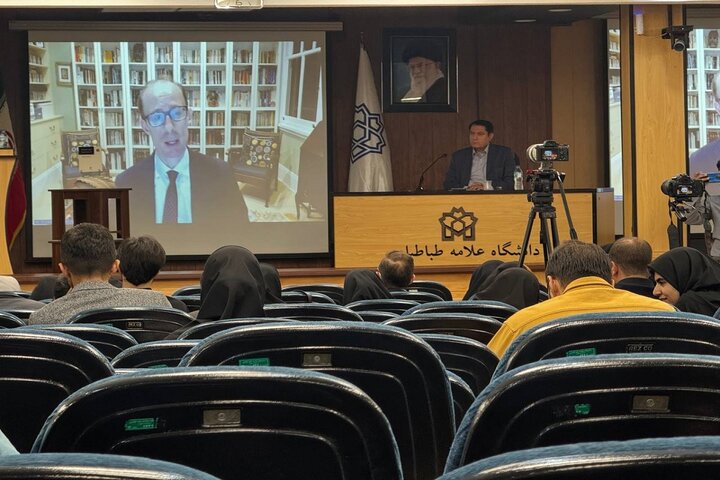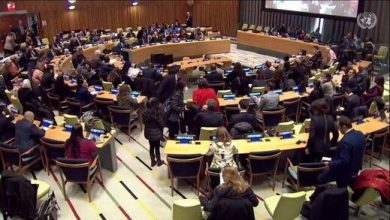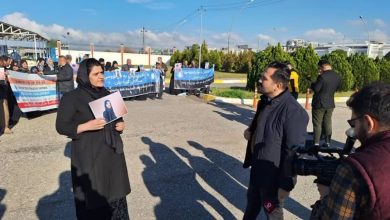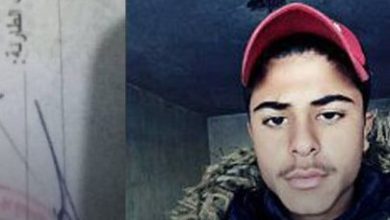The reasons behind the non-adoption of the Comprehensive Convention on International Terrorism were addressed with the participation of domestic and international professors and legal experts
On Tuesday, April 15, 2025, Allameh Tabataba’i University in Tehran hosted the “International Conference on the Draft Comprehensive Convention on International Terrorism; 25 Years Later.” The event was attended by university professors, international law researchers, officials from the Faculty of Law and Political Science of Allameh Tabataba’i University, and a group of journalists and media representatives. Attendees and professors sought to answer the question of why the Comprehensive Convention on International Terrorism has not been adopted during their academic presentations. It is worth noting that the draft Comprehensive Convention on International Terrorism, first proposed in 2000, aims to provide a comprehensive and binding framework for global counter-terrorism efforts. However, over the past quarter-century, it has not yet been finalized due to political, legal, and diplomatic obstacles.
According to a report by Iranian Kurdistan Human Rights Watch from Tehran, Mohammadreza Vijeh, the Dean of the Faculty of Law and Political Science at Allameh Tabataba’i University, expressed his satisfaction with hosting the conference at his faculty at the beginning of his speech. He also expressed hope that with the continuation of scientific and research collaborations, Iranian research centers will be able to regularly monitor conventions and related domestic measures in the coming years. Referring to the differences between terrorism and ordinary crimes, Vijeh stated, “When we talk about terrorism, we usually pay attention to motives. What distinguishes a terrorist from other criminals is their motive; this motive may be right or wrong. The question that arises is why someone reaches a point where they want to take the lives of others because of their beliefs.”
The Dean of the Faculty of Law and Political Science at Allameh Tabataba’i University continued, “In cases where individuals commit murder for financial reasons or family disputes, the issue is different. However, in terrorism, the terrorist often has no knowledge of their target and may act blindly. For example, the assassinations carried out by the Mojahedin-e Khalq Organization in the 1980s show that they did not even know their targets. For instance, someone with no political background was targeted solely because of their religious appearance, which indicates the ignorance and lack of understanding of their targets by the terrorists.”
Dr. Vijeh further stated, “All countries are against terrorism, but the question is why terrorists still exist and operate? Why do groups like ISIS form? Here, a discussion beyond law arises, and we cannot solely approach this phenomenon from a legal perspective. This is where various factors such as political, ethnic, and religious motives play a role in supporting terrorist groups. Even imperialist countries support certain groups for political reasons. This makes the fight against terrorism more complex.”
He further emphasized, “Our duty as legal scholars is to seek the truth and condemn the phenomenon of terrorism in itself.”
The Dean of the Faculty of Law and Political Science at Allameh Tabataba’i University, continuing his speech by emphasizing the importance of truth-finding in the field of law, said, “As legal scholars, we must seek the truth, both in the international arena and domestically. We may be told that we are idealistic and do not follow realities; but we should not be afraid of being labeled as unrealistic.” Referring to international cooperation in combating challenges, this official stated, “All countries have joined hands, but for the reasons I mentioned, this action is not possible. We must try, as far as it concerns us, to act in the legal arena and provide effective solutions.”
Following the welcome address by the Dean of the Faculty of Law and Political Science of Allameh Tabataba’i University to the guests and attendees, Heybatollah Nezhandi-Manesh, the conference secretary, explained the draft Comprehensive Convention on International Terrorism, stating, “Twenty-five years have passed since the draft of this document, and it has still not been adopted.” He added, “Our country, which itself is a victim of the ominous phenomenon of terrorism, can benefit from this draft.”
Also at the ceremony, Ben Saul, the UN Special Rapporteur on human rights and counter-terrorism, and Flavio Bastos, an international law jurist and Secretary-General of the Asian-African Legal Consultative Organization (AALCO), delivered their remarks and speeches via video conference.
Furthermore, Mansoureh Karami, the wife of Massoud Alimohammadi (the Iranian nuclear scientist assassinated by the Israeli regime), stated at the ceremony, “My husband always strived for the development and progress of his country and always loved his people. I remember him always saying that it is the right of our people to have a better situation in line with all the countries of the world. We can change this situation.” She pointed to the destructive effects of the assassination of scientists on Iran’s right to development, saying, “The systematic assassination of Iranian scientists, especially by Mossad and the Mojahedin-e Khalq group, is a clear violation of Iran’s right to development. These assassinations, which have continued since 2010, are an attempt to undermine the country’s scientific and technological progress.” Karami added, “The right to development is an international legal principle recognized in the UN Declaration of 1986, which guarantees that nations can pursue their path of progress without foreign interference.”
Another highlight of the conference was the presence of an official from the country’s judiciary; Soheila Hamed, the Director-General of Treaties and International Organizations of the Judiciary, stated at the conference that “we have not yet comprehensively defined terrorism and have not carried out the necessary criminalization.” She added, “Current laws, such as the Law on the Jurisdiction of the Islamic Republic in 1997 and other scattered and partial laws, are not sufficient, and there is a need for a comprehensive law on combating terrorism.” She continued, “One of the main challenges is the issue of financing terrorism. Currently, only specific acts have been criminalized, and defined punishments exist; however, this issue requires more careful consideration.”
The Director-General of Treaties and International Organizations of the Judiciary said, “For more than 10 years, we have been drafting a comprehensive bill on combating terrorism. Initially, this bill started as the ‘Comprehensive Law on Combating Witchcraft,’ but due to management changes, international developments, and various discussions, this process has been lengthy.” Soheila Hamed continued, “Efforts have been made to draft this bill based on international standards and drawing on the experiences of European and other countries. This bill includes precise definitions of terms such as terrorist person, terrorist group, and terrorist organization.”
The conference also featured three specialized panels on the topics of international law and responsibilities, regional and security cooperation, the role of international law in the regional fight against terrorism, and the impact of tools, artificial intelligence, media, and social networks in supporting and combating terrorism. Hamid Hakim, a legal and political science expert, stated in one of the specialized panels entitled “Regional and Security Cooperation,” “Today, we see that coordination among terrorists is greater than coordination among governments, and this is one of the challenges in combating terrorism.” Hakim added, “As a result of a lack of coordination, various actions may lead to conflicts of interest or interference in operations.”
He stated, “Independent actions in the field of combating terrorism will entail higher economic and human costs and increase the likelihood of political and diplomatic rifts between countries.” Hossein Sartipi, a legal scholar and expert in international law, also elaborated on the dimensions of terrorism in one of the panels of yesterday’s conference, saying, “Terrorism is one of the most complex issues facing the international system. Our main challenge today is how to implement a legal framework to combat terrorism.” This expert on international legal issues emphasized, “It is the duty of academics, experts, legal scholars, and international organizations to properly analyze the roots of terrorism.”
It is worth mentioning that the draft Comprehensive Convention on International Terrorism is, in fact, a step towards finalizing the Comprehensive Convention on International Terrorism, which has not been done for about 25 years, making it the longest-pending issue under consideration by the United Nations. According to the organizers of the conference, the summary of this scientific meeting will be sent to Iran’s representative at the United Nations in New York.
Furthermore, the three-part documentary “Pezhareh,” which explores new dimensions of the activities of terrorist groups against Iranian children and girls in each part, was screened at the conference. The documentary “Pezhareh” unveils the hidden face of Kurdish armed groups; groups that deceive and entice children and adolescents, abducting them with the false hope of work in the Kurdistan Region and dispatch to Europe, and inducting them into their cult-like structure. The first part of this documentary, titled “Dezhi Kano,” was screened at the Ammar Film Festival and received a commendation in the National Memory section of the festival.
It should be noted that this conference, organized by the Faculty of Law and Political Science of Allameh Tabataba’i University with the participation of several active human rights associations, including Iranian Kurdistan Human Rights Watch, the Organization for the Defense of Victims of Violence, and the Arman Smart Commercial Law Research Center, sought to examine and critique various aspects of the draft convention, the related negotiation process, obstacles to its adoption, and the future prospects of this document in the international counter-terrorism legal system. It is also worth mentioning that the Zhipad International Law Group, the Association for the Defense of Victims of Terrorism, and the Association for the Support of Victims of Terrorism were among the other participants in organizing this international conference.






